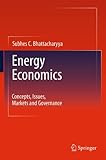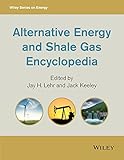 | Since its modest beginning in the 1970s, the academic and research focus on energy has grown substantially and energy has established itself as an independent, interdisciplinary subject area. It attracts attention from people in a range of different fields including engineers, scientists, geologists, environmentalists, bankers, investors, policy makers and politicians. Energy Economics introduces the basic concepts of energy economics and explains how simple economic tools can be used to analyse contemporary energy issues. Energy Economics is organised into six parts that give the reader a thorough grounding in various key aspects of the subject:basic demand-related concepts and ideas used in energy economics; supply-side economics;energy markets, with specific emphasis on oil, gas and coal;the application of simple economic principles in analysing contemporary energy issues;environmental aspects of energy use; andregulatory and governance issues. Energy Economics is an easily accessib | |
| Read more |  | |
Energy Economics: Concepts, Issues, Markets and Governance
Alternative Energy and Shale Gas Encyclopedia (Wiley Series on Energy)
 | Offers a comprehensive depository of all information relating to the scientific and technological aspects of Shale Gas and Alternative Energy. Conveniently arranged by energy type including Shale Gas, Wind, Geothermal, Solar, and Hydropower ; It is perfect first-stop reference for any scientist, engineer, or student looking for practical and applied energy information; this book emphasizes practical applications of existing technologies, from design and maintenance, to operating and troubleshooting of energy systems and equipment and features concise yet complete entries, making it easy for users to find the required information quickly, without the need to search through long articles. | |
| Read more |  | |